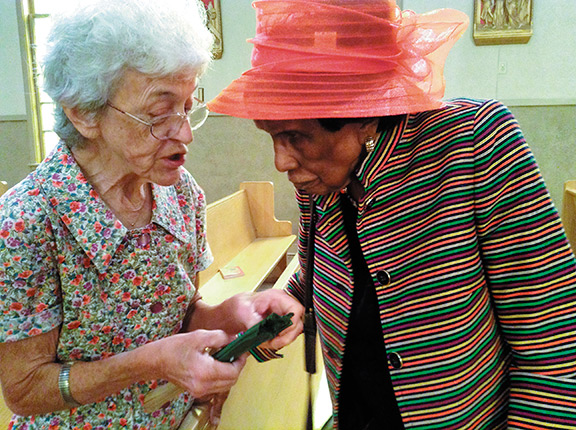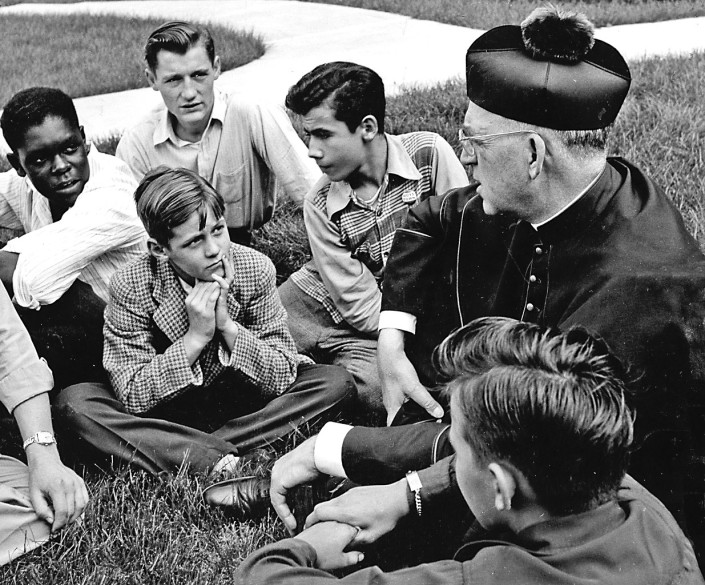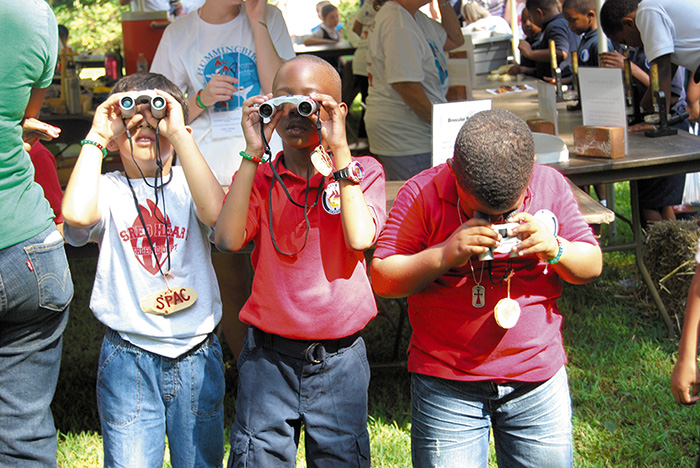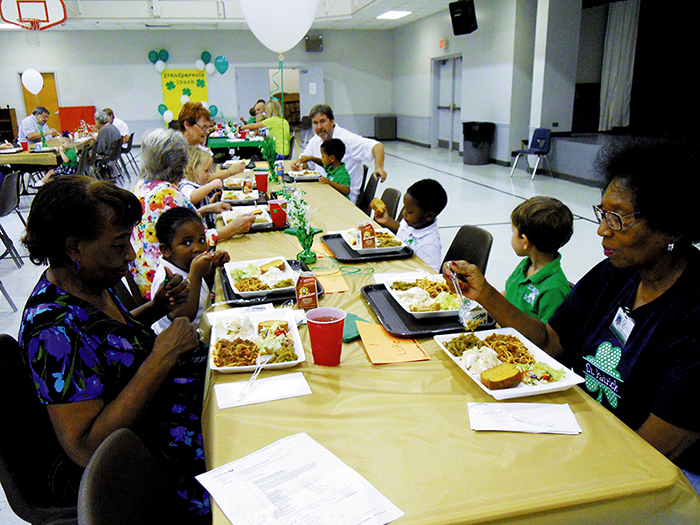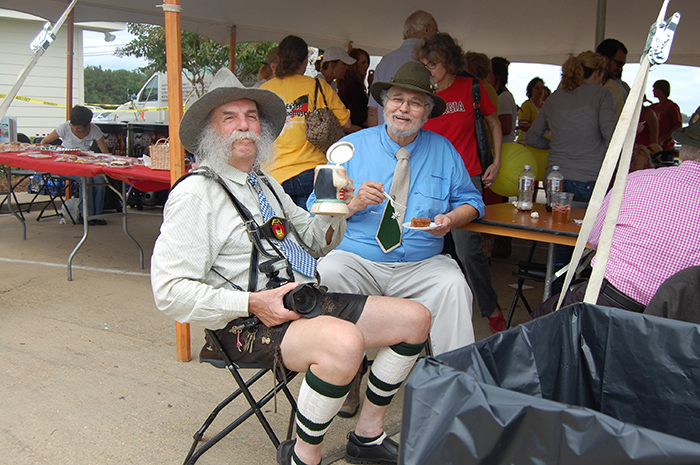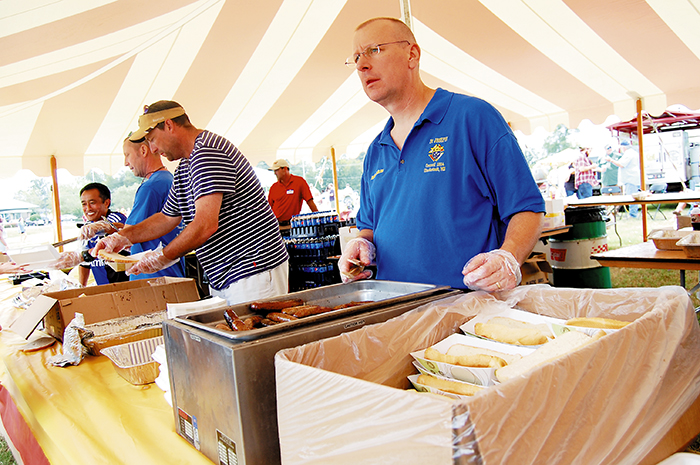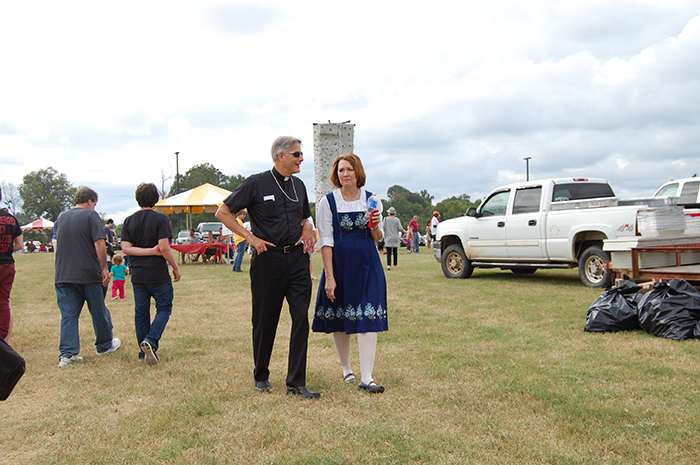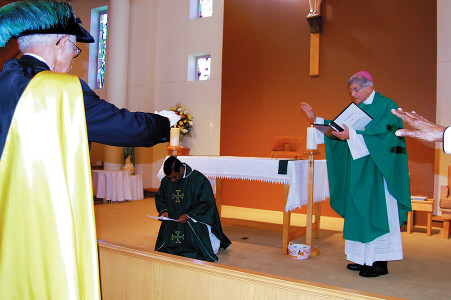By Carol Glatz
VATICAN CITY (CNS) – Today’s bishops must be as vigilant and courageous as sentinels keeping watch over the faith, and as forgiving and patient as Moses, leading a sinning people across harsh deserts to God, Pope Francis said.
Their vocation is not to be wardens of a failed estate, “but custodians of ‘evangelii gaudium’ (the joy of the Gospel); therefore, you cannot be without the only treasure we really have to give, and that the world cannot give itself: the joy of God’s love,” he told new bishops.
The pope made his comments Sept. 18 in a written address to 138 recently appointed bishops from around the world, including Bishop Jospeh Kopacz, 13 other bishops from the United States and two from Australia. The pope said he was happy finally to put a real face to their names and resumes, which he told them he was closely familiar with.
In a lengthy address, Pope Francis outlined a series of do’s and don’ts in their new role as bishops, reminding them of their true mission and urging them to return home “with a message of encouragement” even with the problems awaiting them.
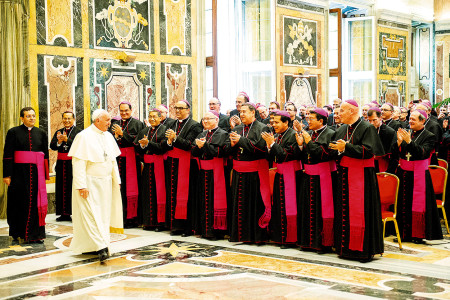
Pope Francis arrives for a meeting with 138 new bishops from around the world at the Vatican Sept. 18. Bishop Kopacz attended the meeting. (CNS photo/L’Osservatore Romano)
Their approach must always be positive, he said, especially with each other. “Though jealously safeguarding the passion for truth, do not waste your energy in opposition and arguments, but in building and loving,” he said.
The bishops must strike a balance between being audacious sentinels, ready 24/7 to wake up a slumbering world, and gentle, forgiving fathers who unconditionally love the sinning people “God has given you.”
The only way to fulfill this mission, he said, is to be constantly in search of and completely bound to Christ, which takes “familiarity, dedication, perseverance and patience.”
“It’s necessary to always dwell in him and never run away from him: Dwell in his word, in his Eucharist, in the things of his father and, above all, in his cross,” he said.
Just as a flame is always kept lit in front of every tabernacle to tell the faithful that Christ is present inside, every priest, too, needs to have the light of Christ shining in his gaze so the flock can “encounter the flame of the risen one.”
That is why the church cannot have bishops who are “switched off or pessimists” or who rely only on themselves and have “surrendered to the darkness of the world or resigned to the apparent defeat of the good, screaming – at this point, in vain – that the tiny fort has been attacked,” he said.
But they do have to be like sentinels, he said, “capable of waking up your churches, getting up before dawn or in the middle of the night to bolster the faith, hope and charity, without letting yourselves be lulled to sleep or conforming to the nostalgic complaint of a golden past that’s already gone.”
“Don’t be bishops with an expiration date,” who are always on the lookout for a new assignment somewhere else, or “like a medicine that will stop being effective or like perishable food to be thrown out,” he said.
Like Moses, bishops need to be with their people no matter what, he said.
“I also beg you to not let yourselves be deceived by the temptation to change the people. Love the people that God has given you, even when they will have committed great sins.”
Like Moses, the bishop must “come up to the Lord” and advocate on his people’s behalf, praying for forgiveness and a fresh start, he said.
“I am well aware of how our times have become a desert,” he said. And that’s why the people need someone who will patiently guide them and help them mature, and who will not “fear death as exiles, but deplete your last energies, not for yourselves, but to let those you guide enter into God.”
Nothing is more important than bringing people to God, he said. The pope urged the bishops to truly be present and available for their priests.
A bishop who is “reachable” isn’t the one who has endless means of communication at his disposal. He’s the one who always has room in his heart to really welcome and listen to all of his priests and their “concrete needs, giving them the entirety and breadth of church teaching and not a list of complaints.”
“And, please, do not fall into the temptation of sacrificing your freedom by surrounding yourself with courtiers, climbers and yes-men, since the church and the world have the right to always find on the lips of the bishop the Gospel, which makes them free.
(Copyright © 2014 Catholic News Service/United States Conference of Catholic Bishops. The CNS news services may not be published, broadcast, rewritten or otherwise distributed, including but not limited to, such means as framing or any other digital copying or distribution method in whole or in part, without prior written authority of Catholic News Service.)
